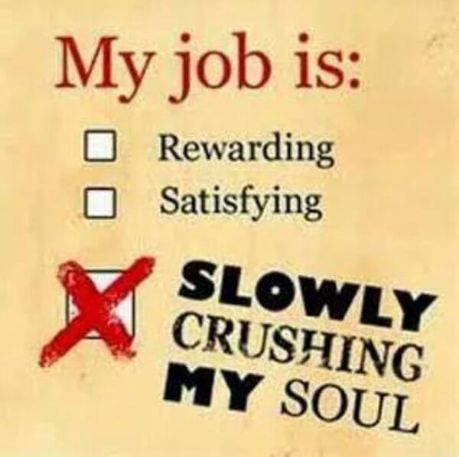Unless you’re a trust fund baby or a member of Congress, you probably have to work for a living. That’s fine; it’s life. But there’s working for a living, and then there’s WORKING for a living. So, as you consider taking a job, how do you know if it’s going to be the kind of “working” that is rewarding and good for the long term, or a soul-sucking, bone-wearying grind?
Here are Five Fast Fact on red flags for work/life balance:
- 🔍 Do your research - The Internet has info on everything if you’re willing to look, including info about companies and how they treat workers. Check out reviews on Glassdoor, LinkedIn, or Twitter, and see what you find. Also see if the company has anything about balance on their own website - if not, then they’re not concerned enough to even pay it lip service.
- 📰 From Step One - Consider the job ad itself. If it uses phrases like “work hard play hard”, “fast paced”, “startup mentality”, or “ninja/guru”...beware. Sure, there might be good balance at places that use these phrases to attract talent, but it could be a signal for long hours and few boundaries. Very few ninjas actually get hired these days.
- ❓ Interviews - In the interview, it’s probably not wise to lead with questions of how little you have to work. But, you can ask some strategic questions to get some indicators, especially after the first interview. If the interviewer looks uncomfortable or gives short, non-specific answers, consider it a warning. Also, beware questions about having to “get the job done no matter how long it takes.” That’s a recipe for burnout!
- 🤔 In Person Scouting - Try to speak with your (prospective) boss and co-workers. Are they friendly, open, and engaged, or are they tired, reserved, and bored? Reading the room can go a long way toward how the company treats its people.
- ♻️ Hiring Issues - Some places will hold “open interviews” indefinitely. This is usually a sign of high turnover, and that’s usually a sign of bad work/life balance. Offering you a job on the spot or pressuring you to accept their offer on the same day is usually a bad sign, as well. It means they’re desperate, and trying to get a commitment from you before you know the full story. Similarly, not being able to tell you who the hiring manager is (or not doing an interview directly with them) or having multiple managers is rarely setting you up for success. No one needs six bosses nagging you about your TPS reports.
🔥Bottom line: There are many other signs that should make you stop and think, but these are some good ones to get you started. No one wants to be stuck in a poor work situation, but a little extra research, observation, and common sense can help you avoid the worst of them.
What’s the worst job situation you’ve ever been in? Were there warning signs you should have noticed?
By the way, we've got your election info hookup here:
